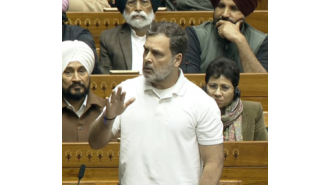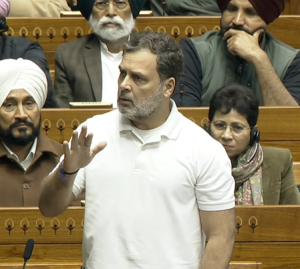Pritzker's EPA promises to intervene as Trump pushes for significant reductions in environmental safeguards.
New leader's plan involves broadening initiatives to combat global warming, proactive measures against persistent pollutants, and accelerating replacement of lead pipes.

When James Jennings stepped into his new role as the top environment cop in Illinois, he knew it would be a challenging job, regardless of who won the presidential election. After years of downsizing and conflict with the state attorney general's office, the Illinois Environmental Protection Agency (EPA) was now under the leadership of Democratic Gov. JB Pritzker, and rebuilding was on the agenda.
As the Illinois EPA Director, Jennings spoke at a news conference where federal funding for renewable energy in the state was announced. The agency had made significant progress in the past two years, adding 261 new employees and nearly doubling their budget to $871 million in 2024. However, with the looming threat of Republican President-elect Donald Trump's promised rollbacks of environmental protections, it was unclear if these efforts would be enough.
Jennings acknowledged the challenges ahead, stating that their priorities would remain the same, despite the changing political landscape. His main focus was on addressing climate change, protecting citizens from harmful chemicals, removing lead pipes, and ensuring environmental justice for all communities.
One of the main tasks for Jennings and his team was to rebuild trust with the state's residents. This was not an easy feat, as the agency had been criticized for being too tough on businesses and for weak enforcement of environmental laws. Jennings recognized the need for transparency and community involvement, stating that they needed to do a better job of helping communities address their environmental concerns.
As part of their efforts to promote environmental justice, the agency had to make improvements under a federal civil rights lawsuit settlement. The lawsuit was filed by community groups in response to the agency's approval of a scrap shredder in a predominantly Latino neighborhood, after the owners closed a similar operation in a wealthier, mostly white area. Jennings emphasized the importance of public outreach, which had been lacking in the past, especially in environmental justice communities.
The lack of public involvement was not limited to the scrap shredder permit but was also evident in the approval of permits for an asphalt plant in the McKinley Park neighborhood. Despite sending notices to neighborhood groups, the letters did not provide clear information on how the public could participate or the timeline for their responses.
In 2018, a Tribune investigation revealed that during the administration of then-Governor Bruce Rauner, penalties for polluters had dramatically decreased. This was because the Illinois EPA had reduced referrals of cases to the attorney general's office for prosecution. Jennings, who had worked at the agency for 13 years and served as deputy director before his current role, stated that they had sent 100 cases to the attorney general in 2024. This was a significant increase from the average of 80 cases per year during Rauner's four-year term.
In an effort to prioritize communities affected by pollution, Jennings stated that future fines would be directed towards projects in those areas, instead of going into the state's general funds. This was in contrast to the policies of the Trump administration, which did not prioritize community-based projects in negotiations with polluters.
Looking towards the future, Jennings acknowledged that the environmental policies of Pritzker and President Joe Biden were at odds with those of President Trump. While Pritzker and Biden aimed to address climate change and promote renewable energy, Trump denied its existence and planned to increase fossil fuel production. In addition, his administration had not been supportive of community-based projects.
As James Jennings and the Illinois EPA continued to navigate through these challenges, their ultimate goal remained the same – to protect the environment and the well-being of all Illinois residents. With a strong focus on transparency, community involvement, and environmental justice, they were determined to overcome any obstacles that came their way.
As the newly appointed top environment cop in Illinois, James Jennings was fully aware of the challenges that lay ahead of him, regardless of who emerged victorious in the recent presidential election. It was a tough job, but someone had to do it. As the state's Environmental Protection Agency (EPA) was being rebuilt under the leadership of Democratic Governor JB Pritzker, Jennings knew that he had his work cut out for him after years of budget cuts, downsizing of staff, and conflicts with the state attorney general's office.
In November 2024, Jennings spoke at a press conference where he announced a significant increase in federal funding for renewable energy in Illinois. This was a positive development for the Illinois EPA, as they had seen a rise in their budget and added 261 new employees in just the past two years. However, with the looming threat of President-elect Donald Trump's promised rollbacks of federal environmental protections, it remained to be seen whether the influx of new resources would be enough to counter these potential setbacks. Trump had also pledged to dismantle the U.S. EPA, which had been instrumental in bringing major cases against polluters in Illinois in recent years.
Jennings acknowledged that the Illinois EPA would have to adapt to a new way of working with the federal government under the new administration. However, he reassured the public that their priorities would remain the same: to protect the environment and the health of Illinois residents. At the top of Jennings' agenda was addressing the urgent issue of climate change, taking stronger action to protect people from harmful chemicals, and expediting the removal of lead pipes that posed a threat to the community. He also emphasized the importance of addressing environmental justice concerns and building trust with the people of Illinois, a daunting task given the agency's reputation for being too harsh on businesses and having a weak enforcement record.
Jennings was well aware that the Illinois EPA needed to improve its communication and transparency in order to gain the trust of the public. This was especially important after a federal civil rights lawsuit was settled in February, which was brought against the agency by community groups. The lawsuit was a response to the Illinois EPA's approval of a scrap shredder in Chicago's predominantly Latino Southeast Side, after the owners had closed their problematic General Iron operation in the wealthy, mostly white neighborhood of Lincoln Park. It was clear that the agency needed to do more to engage with the community and involve them in the decision-making process.
In addition to addressing environmental justice concerns, Jennings also highlighted the need for public outreach and involvement in environmental issues. A previous investigation by the Chicago Tribune had revealed that the Illinois EPA had not held any public hearings or provided adequate information to the public about permits that could increase pollution in environmental justice communities. This lack of transparency had been a recurring issue, not just with the scrap shredder permit, but also with other permits, such as one for an asphalt plant in the McKinley Park neighborhood.
Under the previous administration, there had also been a significant decrease in penalties sought from polluters, as the Illinois EPA had cut back on referring cases to the attorney general's office for prosecution. Jennings, who had been with the agency for 13 years and served as deputy director before his current role, stated that they had already referred 100 cases to Attorney General Kwame Raoul in 2024. This was a significant increase compared to the average of 80 cases per year during the four years of the previous governor's term. Going forward, the Illinois EPA planned to redirect fines from enforcement cases towards projects in affected communities, rather than a general fund in the state's coffers. This was in stark contrast to the Trump administration's approach, which did not prioritize community-based projects during negotiations with polluters.
It was evident that President Trump's second term agenda would be at odds with the environmental policies of both Governor Pritzker and President Joe Biden. Trump had openly dismissed climate change as a hoax and was in favor of expanding fossil fuel production, while Biden had ambitious plans to tackle the climate crisis. Despite these challenges, Jennings remained optimistic and committed to fulfilling the Illinois EPA's mission of protecting the environment and the health of the people of Illinois. As the agency continued to rebuild and adapt to a new federal administration, Jennings and his team would work tirelessly to ensure a cleaner, healthier future for all.
9 Views










